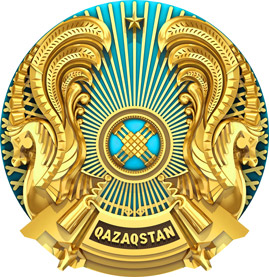Ethnic Groups
The population of Kazakhstan is various by its ethnical compound. Representatives of 130 nationalities live here. The local ethnos – Kazakhs make the largest part of the population – 58.9%, while Russian – 25.9%, Ukrainians – 2.9%, Uzbeks – 2,8%, Uighur, Tatar and German - 1.5% each, and other groups 4,3%. There are more than 100 ethnic groups living in peace in Kazakhstan.
Many nationalities have come to Kazakhstan not on their own will, but were driven here by political repression and persecution. In Stalin’s times Kazakhstan hosted 1.5 million of political prisoners from Russia and other regions of the USSR. And more than 1.3 million of people were deported by Stalin regime during World War II years “as representatives of unreliable nations”. All these people found understanding and support of Kazakh people, found their second Motherland on the land of Kazakhstan.
The principle of equality of all ethnic groups that inhabit our country is strictly adhered by. All conditions for a full national self-expression have been created as well as the rights for the fulfilment of their ethno cultural interests are ensured. Legal guarantees and respectful treatment of all the languages used in the republic defend the integral right of citizens of any nationality to develop their language and culture. Figures witness the balance and harmony of the national policy: about 40% of secondary schools use Russian language in teaching. The higher education for 70% is available in Russian language. In areas of residence of compact ethnic groups schools function with Uyghur, Tajik, Ukrainian, German, Polish and other languages of teaching.
The Sunday schools of national and cultural unions also receive support in the teaching of native languages. Today 30 languages of ethnic groups of Kazakhstan are taught in about 200 Sunday schools and 3 schools of national revival. Magazines and newspapers are published, TV and radio programs are broadcast in 11 national language in Kazakhstan. Books in the languages of ethnic minorities of Kazakhstan are published annually on the state order with a total number exceeding 80 000. Besides Kazakh and Russian theatres there are also Uyghur, German and Korean ones.
Ethnic cultural centres have been established in all areas of Kazakhstan, to support ethnic identity of different nationalities. Their highest forum is the Assembly of peoples of Kazakhstan. Today this powerful social force has become an organic part of the civil society and expresses its views in the chambers of the Parliament, political parties, mass-media, state and non-government organizations. The Assembly of peoples of Kazakhstan has become an important element of the political system of Kazakhstan. It has forged the interests of all the ethnos and ensures the rights and freedoms of all citizens regardless of their ethnic origin and religion. 27 republican and regional, more than 300 district ethnic cultural unions enter the Assembly of people of Kazakhstan. Three centres have an international status. The Assembly deals with 16 Small Regional Assemblies of peoples of Kazakhstan which act as consultative bodies by the regional administrations and comprise representatives of local ethnic-cultural and social unions.
Kazakhstan’s efforts to ensure inter-ethnic peace and accord are essential for internal stability and are widely recognized in the world. The Pope as well as UN General Secretary Koffi Annan who paid visits to our country over the last five years cited Kazakhstan as the example of inter-ethnic consent and sustainable development of a multi-ethnic society. The interethnic policy is based on the principle of unity in variety. The civil peace and consent in Kazakhstan are the result of a persistent policy of the Government which enjoys the support of the whole society.


